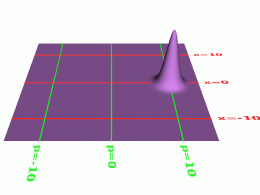Introduction
Do you find yourself studying for hours only to forget everything the next day? You’re not alone. Many people struggle with retaining information, especially when using outdated or ineffective study methods. But the good news is that with the right techniques, you can dramatically improve your ability to remember and apply what you learn. Whether you’re a student preparing for exams, a professional acquiring new skills, or simply a lifelong learner, mastering effective study strategies can make all the difference. In this article, we’ll explore the best study techniques backed by science to help you retain information, stay focused, and maximize your learning potential. Ready to transform your study habits and boost your memory? Let’s dive in.
How Memory Works: Understanding Retention

To understand how to retain information, it’s helpful to know how memory works. When you learn something new, your brain first stores the information in short-term memory. To remember things long-term, the information needs to move to long-term memory. This is where the study techniques come in. They help move knowledge into long-term memory by helping you review, practice, and engage with the material in different ways.
Best Study Techniques for Retaining Information

1. Use Active Recall for Better Memory
Active recall involves actively testing yourself on the material rather than passively rereading notes. This technique strengthens neural connections and improves long-term retention.
Tip: After reading a chapter, close the book and try to recall key points from memory.
Example: “I used flashcards for active recall in my biology class, and it helped me ace the exam.”
2. Practice Spaced Repetition
Spaced repetition involves reviewing material at increasing intervals over time, reinforcing memory and preventing forgetting.
Tip: Use apps like Anki or Quizlet to automate spaced repetition for efficient learning.
Example: “Reviewing vocabulary every few days with spaced repetition helped me retain new words for my language exam.”
3. Teach What You Learn
Explaining concepts to others helps solidify your understanding and identify gaps in your knowledge.
Tip: Pretend you’re teaching the material to a friend or family member, or join a study group.
Example: “I explained complex math problems to my classmates, and it helped me grasp the concepts better.”
4. Use the Pomodoro Technique for Focus
The Pomodoro Technique involves studying in focused intervals (typically 25 minutes) followed by short breaks, helping to maintain concentration and avoid burnout.
Tip: Set a timer for 25 minutes of study, followed by a 5-minute break repeat as needed.
Example: “Using the Pomodoro Technique kept me focused and made long study sessions feel manageable.”
5. Create Mind Maps to Visualize Information
Mind mapping involves organizing information visually, which helps with understanding and memory retention.
Tip: Use colorful diagrams and keywords to connect ideas and concepts.
Example: “Creating a mind map for my history class helped me see the connections between events and dates.”
6. Relate New Information to What You Already Know
Connecting new material to existing knowledge makes it easier to remember and understand.
Tip: Use analogies or real-life examples to relate new concepts to familiar experiences.
Example: “I linked physics concepts to everyday situations, like comparing momentum to a moving car, which made them easier to grasp.”
7. Study in Different Environments
Changing your study environment can improve retention by creating diverse memory cues.
Tip: Rotate between studying at home, in a library, or outdoors to keep your mind engaged.
Example: “Switching between the library and coffee shops kept my study sessions fresh and helped me retain more information.”
8. Take Care of Your Body and Mind
Physical health plays a big role in cognitive function. Adequate sleep, hydration, and exercise enhance focus and memory.
Tip: Get at least 7-8 hours of sleep, stay hydrated, and take breaks for physical activity.
Example: “After improving my sleep schedule, I noticed a significant boost in my ability to concentrate and retain information.”
The Importance of Consistency in Studying

One of the most important things in learning is being consistent. It’s not just about cramming all the information in one sitting; instead, it’s better to study regularly and consistently. Using study techniques like spaced repetition helps you spread your learning over time. By reviewing the material regularly, you’ll remember it better than if you try to study everything all at once. Consistency makes learning easier and less overwhelming.
How Active Recall Improves Memory
Active recall is a technique where you test yourself on what you’ve learned instead of just rereading your notes. For example, after reading a chapter, try to write down everything you remember from the chapter without looking at your notes. This helps you focus on the most important details and makes your memory stronger. By practicing active recall, you make sure that information is not only stored in your brain but also retrievable when you need it.
How Visualization Helps with Learning
Visualization is another helpful technique that involves creating mental images of what you’re trying to learn. If you’re studying a complex topic, try picturing it in your mind. For example, if you’re learning about the water cycle, you can imagine the process of evaporation, condensation, and precipitation. Creating pictures or stories in your mind can make the material easier to remember. Your brain tends to remember images better than words, so this technique can be very effective.
The Power of Group Study

Studying with others can be a powerful way to learn. In a group study setting, you can discuss the material, share ideas, and explain things to each other. Teaching someone else what you’ve learned helps you understand the material better yourself. Group study also helps you stay motivated. When you’re studying alone, it’s easy to get distracted or lose focus, but being part of a study group can keep you on track and help you stay engaged with the material.
Using Technology to Enhance Learning
Technology is becoming a great tool for improving how we study. Apps, online flashcards, and learning platforms can help you use study techniques more effectively. For example, apps for spaced repetition let you set up reminders for reviewing your material. Some apps also offer interactive quizzes or games that make learning more fun. Technology can help you track your progress and provide resources that fit your learning style.
The Need for Personalized Study Plans
Not everyone learns in the same way. Some people might prefer visual methods, while others might learn better through reading or listening. This is why personalized study plans are important. By choosing the study techniques that work best for you, you can learn more effectively. Whether it’s breaking down your study sessions with the Pomodoro technique or using active recall, creating a study plan tailored to your needs will help you achieve better results.
The Power of Good Sleep for Retaining Information

Sleep plays a big role in learning and memory. When you sleep, your brain processes the information you learned during the day. This means that getting enough sleep is essential for remembering what you’ve studied. If you stay up late cramming for a test, you might not remember the material well. A good night’s sleep helps your brain store and organize new information, so you can recall it easily later.
Why It’s Important to Stay Organized
Being organized can make your study sessions more efficient. When your study materials are in order, it’s easier to find what you need and stay focused on what you’re learning. Using tools like planners, notebooks, and digital apps to keep track of your assignments can help you stay organized. This way, you won’t waste time looking for materials or figuring out what to study next, making your study time more productive.
Challenges with Study Techniques
While study techniques are helpful, they come with their own set of challenges. For one, it takes time and effort to learn how to use these methods properly. Some people may find it hard to stick to methods like spaced repetition or active recall because they require consistent effort. Additionally, not every technique works for everyone, so it might take a bit of trial and error to find the best one for you.
The Future of Study Techniques

The future of study techniques looks bright. As technology continues to improve, we may see even more advanced tools and apps that help students and professionals learn better. Virtual reality, AI-powered tutoring systems, and personalized study plans are just a few examples of how the future of studying could change. These new methods will make it easier to learn and remember, especially for those with busy schedules or specific learning needs.
Comparative Table of Study Techniques
| Study Technique | What It Is | Why It Works |
|---|---|---|
| Active Recall | Testing yourself on what you’ve learned. | Helps you remember things long-term. |
| Spaced Repetition | Reviewing material at spaced intervals. | Helps prevent forgetting and keeps info fresh. |
| Interleaving | Mixing up different subjects in one session. | Helps your brain adapt and improve problem-solving. |
| Pomodoro Technique | Studying in short bursts with breaks. | Keeps you focused and prevents burnout. |
| Visualization | Creating mental pictures to help remember. | Makes information easier to recall. |
| Study Groups | Studying with others. | Explaining things to others helps reinforce your knowledge. |
Analysis Table of Study Techniques
| Technique | Effectiveness for Retention | How Easy It Is to Do | Best For |
|---|---|---|---|
| Active Recall | Very Effective | Moderate | Students, professionals, anyone learning |
| Spaced Repetition | Very Effective | Moderate | All learners, especially for long-term studying |
| Interleaving | Effective | Moderate | Math, science, and problem-solving topics |
| Pomodoro Technique | Moderate | Easy | Anyone who needs to stay focused for long periods |
| Visualization | Effective | Easy | People memorizing lists or concepts |
| Study Groups | Effective | Easy | Anyone who likes learning with others |
Conclusion
Mastering effective study techniques can transform the way you learn and retain information. By incorporating strategies like active recall, spaced repetition, and the Pomodoro Technique, you’ll improve your focus and memory while making study sessions more efficient and enjoyable. Remember, it’s not just about the time you spend studying—it’s about how you study. Experiment with different methods, find what works best for you, and stay consistent in your approach. With the right techniques and a commitment to learning, you’ll achieve your academic and personal growth goals in no time. Ready to unlock your full learning potential? Start implementing these strategies today and watch your retention soar.
Call to Action
What study techniques work best for you? Share your tips and experiences in the comments below, and subscribe for more learning strategies and academic success tips!











